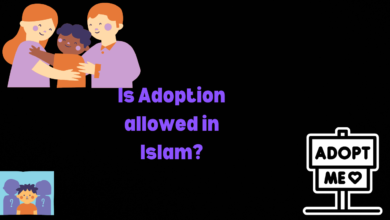
How much is zakat?
Zakat is a mandatory charitable contribution in Islam. It is one of the Five Pillars of Islam and is a form of wealth redistribution to help those in need.

Introduction
Zakat, often referred to as “almsgiving” or “charity,” is a fundamental pillar of Islamic faith that plays a significant role in promoting economic justice and social welfare within the Muslim community. This mandatory act of giving is deeply rooted in Islamic teachings, aiming to redistribute wealth and help those in need. But how much is Zakat, and how does one calculate it? In this article, we will delve into the principles and guidelines surrounding Zakat to better understand its significance and its specific financial implications.
The Meaning of Zakat
Zakat is one of the Five Pillars of Islam, which are the core acts of worship and practice that shape the lives of Muslims. It is a form of compulsory charity that aims to address socioeconomic inequality and promote compassion within the Muslim community. The word “Zakat” is derived from the Arabic root “Z-K-W,” which means “to purify” or “to grow.” By giving a portion of their wealth, Muslims cleanse their possessions and grow in piety.
The Amount of Zakat
The amount of Zakat an individual is required to pay is generally 2.5% of their accumulated wealth, which includes savings, investments, and certain assets. Zakat is not levied on income, rather on accumulated wealth held over a lunar year. In essence, it serves as a form of wealth tax to support those in need.
Here’s a simplified guide to calculating Zakat:
- Determine Your Assets: First, you need to identify your assets that are Zakatable, including savings, investments, and certain valuable possessions. Personal items like your home, clothing, and essential household items are not included in the calculation.
- Deduct Your Debts: Subtract any outstanding debts, such as loans or bills, from your total assets.
- Calculate 2.5%: To find the Zakat amount, take 2.5% of the remaining wealth after deducting debts.
For example, if your total accumulated wealth is $10,000 and you have $2,000 in outstanding debts, the Zakat calculation would be:
($10,000 – $2,000) x 0.025 = $200
In this case, you would be obligated to pay $200 in Zakat.
Who Is Eligible to Receive Zakat?
Zakat can only be given to specific categories of recipients, as outlined in the Quran. These categories include:
- The Poor (Al-Fuqara): Those who are destitute and unable to meet their basic needs.
- The Needy (Al-Masakin): Individuals who are financially strained but not entirely destitute.
- Those Employed to Administer Zakat (Al-Aamileen): People appointed to collect, manage, and distribute Zakat funds.
- Those Whose Hearts Are Inclined (Al-Muallafat Qulubuhum): New Muslims or those whose hearts are to be reconciled to Islam.
- To Free Slaves (Fir-Riqab): To help those in bondage gain their freedom.
- Debtors (Al-Gharimin): Those who are burdened by debt and need assistance.
- In the Way of Allah (Fi Sabilillah): To support causes that promote the welfare of the Muslim community or to defend Islam.
- The Wayfarer (Ibn Sabil): Travelers in need of financial assistance.
The Distribution of Zakat
When giving Zakat, it is advisable to ensure that it reaches its intended recipients efficiently. This can be done by donating through reputable charitable organizations or directly to individuals in need. Many countries have established Zakat collection and distribution agencies that facilitate the fair distribution of Zakat funds. These organizations work to verify the eligibility of recipients and manage the disbursement process.
Conclusion
Zakat, an essential component of Islamic faith, is a powerful tool for addressing socioeconomic disparities and promoting communal solidarity. Understanding how to calculate Zakat and knowing who is eligible to receive it is crucial for Muslims who wish to fulfill this religious obligation. By giving Zakat, Muslims not only purify their wealth but also contribute to the betterment of society, fostering an environment of compassion and social justice.

(FAQs) about Zakat:
What is Zakat?
Zakat is a mandatory charitable contribution in Islam. It is one of the Five Pillars of Islam and is a form of wealth redistribution to help those in need.
How much is Zakat?
The amount of Zakat a person is required to pay is generally 2.5% of their total wealth, which includes savings, investments, and other assets, after deducting necessary expenses.
Who is obligated to pay Zakat?
Muslims who possess a minimum amount of wealth, known as Nisab, and who can meet their basic needs are obligated to pay Zakat. It is not obligatory for those in extreme poverty or those without the minimum wealth threshold.
What is the Nisab for Zakat?
The Nisab is the minimum amount of wealth a person must possess to be eligible to pay Zakat. The value of Nisab may vary based on the prevailing market rates and currency, so it’s important to check with local authorities or scholars for the specific amount.
When do I pay Zakat?
Zakat should be paid annually. The exact time for paying Zakat can vary depending on personal circumstances, but many Muslims choose to give it during the holy month of Ramadan.
What types of wealth are subject to Zakat?
Zakat is applicable to various forms of wealth, including savings, investments, jewelry, gold, silver, and income-generating assets. It does not apply to personal items like clothing, your primary residence, or everyday necessities.
How is Zakat calculated?
Zakat is calculated based on the total value of the eligible assets you own, minus any outstanding debts or expenses. The amount payable is usually 2.5% of the remaining wealth.
Can Zakat be given to any charitable cause?
Zakat is intended for specific charitable purposes, primarily to support the poor, needy, or those in financial hardship. It cannot be used for general charitable donations or non-Islamic charitable organizations.
Can Zakat be given to family members?
Yes, Zakat can be given to family members who are eligible to receive it, such as those who meet the criteria of poverty or financial hardship. However, it is recommended to provide it to those outside your immediate family first.
Can I pay Zakat in advance or in installments?
Yes, you can pay Zakat in advance or in installments, as long as you ensure the full amount is paid within the Islamic lunar year.






